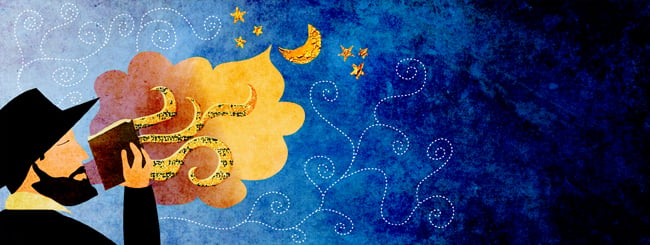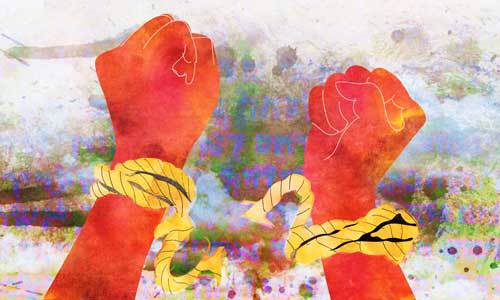
Shoftim: Judges and Officers
This week we read the Torah portion of Shoftim.
Moshe instructs the people of Israel to appoint judges and law enforcement officers in every city. He then explains how in every generation, there will be those who are put in charge of interpreting and teaching the Torah to the masses, and how they must be listened to.
Shoftim also includes the prohibitions against idolatry and sorcery; laws governing the appointment and behavior of a king; and guidelines for the creation of “cities of refuge” for the inadvertent murderer. Also set forth are many of the rules of war.

Opening the Gates of Forgiveness
Selichot (“Forgivenesses”) are special prayers said on fast days and during this season. The highlight of the Selichot is the recitation of the 13 Attributes of Mercy, the formula that G‑d gave Moses for securing divine forgiveness. Sepharadim begin at the start of the month of Elul and finish 40 days later on Yom Kippur. Ashkenazim begin saying Selichot several days before Rosh Hashanah (always on a Saturday night).
In addition, Elul is a time to increase and improve our mitzvah observance. Many people have the custom to have a scribe inspect their tefillin and mezuzahs during this month to ensure their kosher status.

Guided by the Voices of Our Leaders
Moshe instructs the Jewish people to adhere to the teachings that future leaders will explain on the Torah.
There are four levels through which the Torah can be explained:

The Final Words of Consolation
This week, the Haftarah we read is the last of the “Haftaras of Consolation.” It speaks about the joy we will experience at Moshiach's arrival.
The haftorah ends by highlighting the difference between the Egyptian Exodus, when the Jewish people hurried out of their exile and bondage, and the future Redemption: "For not with haste shall you go forth and not in a flurry of flight shall you go, for the L-rd goes before you, and your rear guard is the G‑d of Israel."

The Blessing That Echoed Through Generations
I visited the Lubavitcher Rebbe in the spring of 1990. During the visit, I asked for a blessing for my sister, who was trying to have children. The Rebbe gave her a blessing and also told me that she should put up mezuzahs in her home.
I went down the block to the Judaica store and bought enough mezuzahs for each room of her home. I sent them to her, and she immediately put them up. Within a year—almost to the day—of my meeting with the Rebbe, my sister had a child. Two years later, she had a second. Many years passed, yet the miraculous blessing never left the family.
My brother-in-law was a first responder during the Sept. 11, 2001 attacks in New York City. There was such complete chaos that for days on end loved ones didn’t know who was alive and who had died. My sister was one of those in agony of not knowing. When she finally discovered that her husband had survived, we learned of yet another miracle.
My brother-in-law remembers seeing a falling object about to crash down on him. That was his last memory before he lost consciousness. When he awoke hours later, he learned that a firefighter had saved his life by pushing him out of the way of the falling debris that would have definitely killed him instantly.
Why him? From all the people in the crowd, why did the firefighter save my brother-in law?
We later learned they had children in the same class, and the firefighter had seen him at school events. Everything was moving so quickly—there was so much death and destruction in those moments—but the fireman’s basic, visceral reaction was to save the father of his child’s friend. He saw that familiar face, realized this man was about to be crushed under the debris, instinctively remembered his own child, and did whatever he could to save the life of another child’s father.
The child who was in the class of the firefighter’s son was none other than the miracle child, born in merit of the blessing of the Rebbe, who loved every person and saw the light in everyone he met. This child was born after fulfilling the mitzvah of mezuzah, which protects us in our homes and in our surroundings.